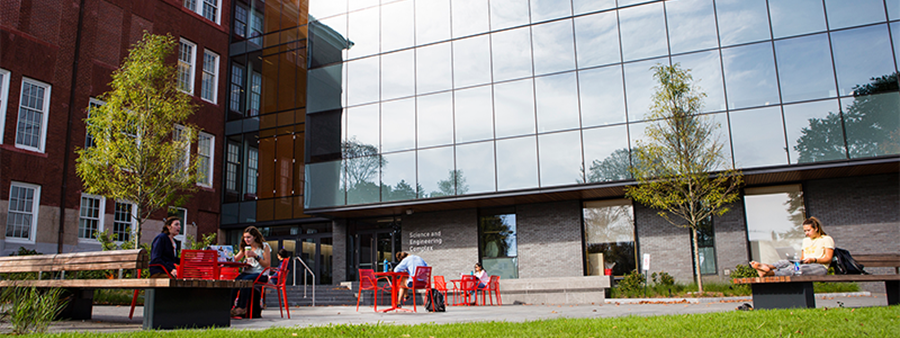Prospective Students

Why Tufts? - Future of engineering
Biomedical engineering continues to build the future, not just respond to the present, by anticipating needs that interface engineering and clinical medicine. BME fosters collaborations among disciplines at its core by building on basic concepts in engineering and biology. At Tufts, you’ll learn from innovative faculty working at the cutting edge of their fields. Our graduates go on to great things: founding start-ups, advancing society and industry, and studying in highly ranked PhD programs.
Interdisciplinary education
Grounded in interdisciplinary education and research, our students collaborate closely with faculty and peers in project-based work. Tufts engineering provides students with the tools to cultivate their passions academically and professionally in a dynamic and supportive environment.
Collaborative research
Tufts uses a collaborative and interdisciplinary approach to education and research for all our students, faculty, and staff. Multidisciplinary learning is vital to understanding engineering issues in the context of the larger world. Our flexible undergraduate program challenges traditional curriculum restrictions for students by allowing engineers to choose a second major or a minor from the School of Engineering or the School of Arts and Sciences, while graduate students collaborate with colleagues across the university.
Active learning
Biomedical engineering students at Tufts receive a student-centered education at a top-notch research university. Faculty and industry professionals work with students on technical, leadership, and communications skills to bring their knowledge into the public, private, or academic sectors. Located just five miles from downtown Boston, Tufts School of Engineering is an ideal place to create connections and build your engineering career.